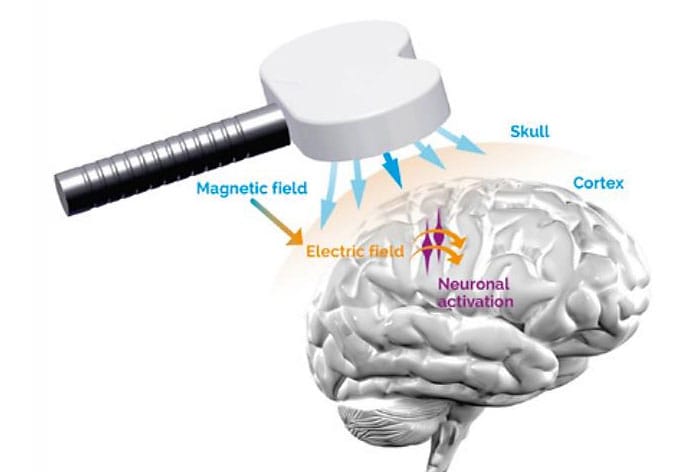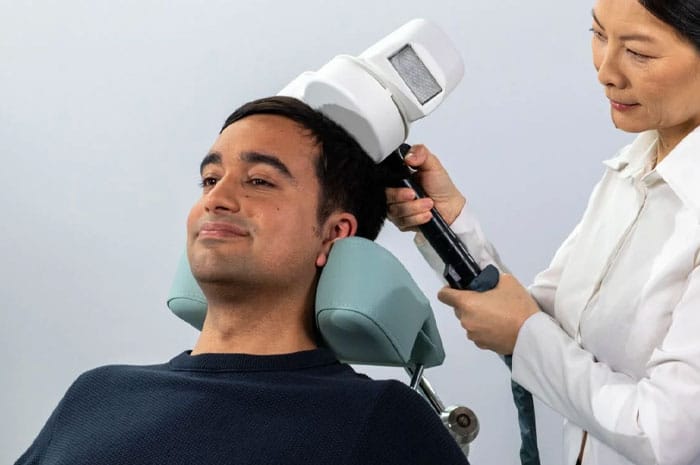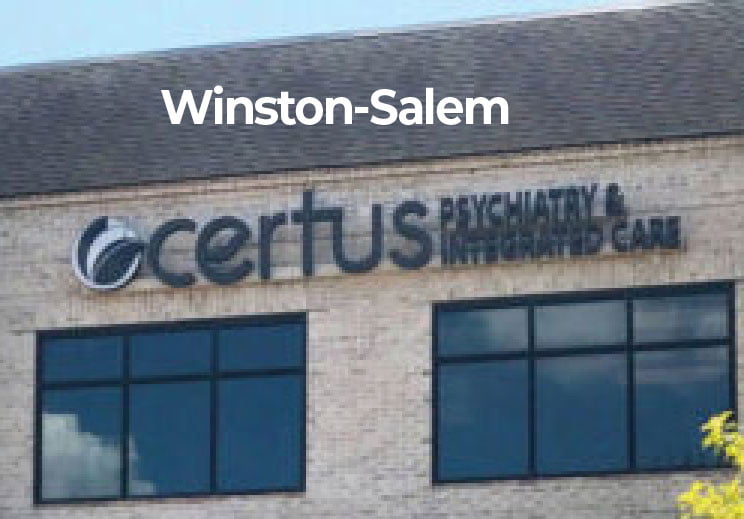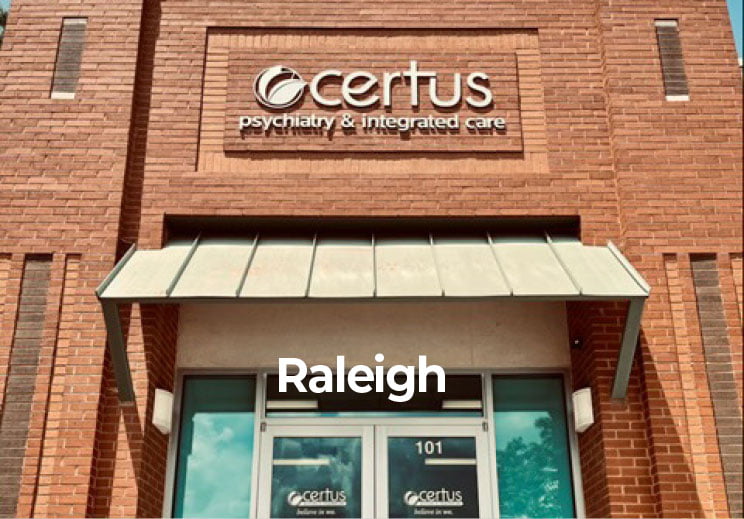transcranial magnetic stimulation
When it seems like everything you try fails, TMS may be for you.
Feeling sad or hopeless now and then is a normal and natural part of life. For those with depression, feelings of deep sadness, hopelessness, and even suicidal thoughts can become intense and long-lasting.
Depression can affect your relationships with family members, coworkers, and friends, and impact your physical health.
Depression is usually treated with a combination of antidepressant medication and therapy. For some, antidepressants provide enough relief on their own. But for others, medications and therapy don’t seem to work. This is called “treatment resistance,” and TMS may provide the relief you need.


TMS — Treatment-Resistant Therapy
Transcranial Magnetic Stimulation – TMS
Although many different forms of drug therapies exist, not everything works for everyone, and some side effects can be worse than the conditions they are supposed to work to fix.
- TMS can help achieve remission for major depressive disorders that do not improve through medications.
- TMS is an approach that uses magnetic pulses to stimulate neural activity accurately.
- TMS is an FDA-approved treatment for patients who do not benefit from antidepressant medications.
- Certus is one of just a few practices that offer TMS therapy, and we have helped the majority of patients we have treated realize great outcomes.
Schedule an appointment to learn more.
What is TMS?
How does TMS work?
- TMS technology is similar to MRI scanners where short magnetic pulses are emitted from a butterfly-like coil and painlessly passed to the brain’s outer regions.
- Short and small electric fields are induced to influence neural activity.
- By stimulating with several pulses over several treatment sessions, TMS can have lasting effects on the brain, inhibit overactive areas, or excite underactive regions, as is the case in depression treatment.
- TMS is noninvasive, meaning it does not involve surgery, anesthesia, or sedation of any kind, nor is it systemic, which means no medication is involved with the treatment.
NOTE: If you are on a medication, always consult your Certus Care Provider before discontinuing its use.
Does TMS have side effects?
- TMS is free of most side effects that are typically associated with antidepressant medications, such as weight gain, sexual problems, or upset stomach.
- The most common side effect is slight pain at the point of treatment, some headaches, drowsiness, and rarely dizziness. These typically disappear within a short amount of time.
Is TMS right for you?
- A TMS treatment session can last up to 20 minutes. Before and right after treatment, you may engage in your normal activities.
- In total, you will receive up to five TMS sessions per week for at least eight weeks.
- You are alert and awake during treatment.
- Most insurance providers will approve TMS treatment for those who qualify.
NOTE: TMS is not the same as electroconvulsive therapy (ECT). ECT is commonly referred to as “shock therapy,” which is a treatment for depression that uses electricity to produce seizure-like activity in the brain while a patient is “asleep” under anesthesia.
At Certus, we want you to find your path to better mental health.
Whether you’re in the Piedmont Triad or the Research Triangle, contact us to schedule an appointment for Treatment-Resistant Therapies.
Let’s move forward together.

Winston-Salem Office
1255 Creekshire Way
(between Brixx and Firebirds)
Two Convenient
Locations!

Raleigh Office
1350 Sunday Drive
Suite 101

